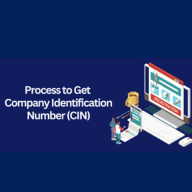Company incorporation for startups

Legal & Compliance
457 week ago — 9 min read
Startup founders can be overwhelmed by legal information when they go looking for it. The sheer number of requirements the government places on businesses can, and does, confuse. Consequently, entrepreneurs allow themselves to be misled down paths they need not take. This includes registering themselves as private limited companies when a limited liability partnership (LLP) would suit them better or, if it’s too early, when a simple founders’ agreement would do just fine. To make this process simpler, we’ve fleshed out the main features of each structure and analysed which businesses they suit best.
Features of Private Limited Company
In short, this legal structure should be considered by start-ups looking to raise funding or attract the best in the job market with ESOPs. But please read on to know why this is so:
For businesses raising funding: Fast-growing businesses that will require funding from venture capitalists (VCs) need to register as private limited companies. This is because only private limited companies can make them shareholders and offer them a seat on the board of directors. LLPs would require investors to be partners and OPCs cannot accommodate additional shareholders. If you’re raising funding, therefore, the points that follow scarcely matter; your decision is made.
Requires greater compliance: In exchange for the convenience of easily accommodating funding, the private limited company set-up needs to meet the demands of the Ministry of Corporate Affairs (MCA). These range from a statutory audit, annual filings with the Registrar of Companies (RoC), annual submission of IT returns, as well as quarterly board meetings, the filing of minutes of these meetings, and much else. If your business isn’t yet geared to meet these requirements, you may want to wait a while before you jump into registering a private limited company (some businesses first register an LLP because the compliances are fewer).
Few tax advantages: The private limited company is assumed to have many tax advantages, but this is not actually the case. There are some industry-specific advantages, but taxes are to be paid at a flat rate of 30% on profits, the dividend distribution tax (DDT) applies, as does Minimum Alternate Tax (MAT). If you’re looking for the structure with the lowest tax burden, the LLP does offer some better benefits.
Startup cost: A private limited company costs around Rs. 8000 to start at the very least, excluding professional fees. However, this will be higher in some states; in Kerala, Punjab and Madhya Pradesh, in particular, the fees are much higher. You also need some paid-up capital, which can be as little as Rs. 5000 to begin with. The annual compliance costs are around Rs. 13,000.
Features of LLP
The LLP is meant for professional and advisory firms with no need for equity funding. If this applies to your business, pick the LLP; it’s been gaining in popularity since 2008 because it combines some of the better aspects of partnership firm and private limited company.
For non-scalable businesses: If you’re running a business that’s unlikely to require equity funding, you may want to register an LLP as it combines several benefits of the private limited company and general partnership. It has limited liability, like a private limited company, and has a simpler structure, like a general partnership.
Fewer compliances: The MCA has made given some concessions to the LLP. For example, an audit needs to be performed only if your turnover is greater than Rs. 40 lakh or paid-up capital is more than Rs. 25 lakh. Furthermore, whereas all structural changes need to be communicated to the RoC in the case of private limited companies, the requirement is minimal for LLPs.
Tax advantages: Particularly if your business is earning over Rs. 1 crore in profits, the LLP offers tax benefits. The tax surcharge that applies on companies with profits over Rs. 1 crore doesn’t apply to LLPs, nor does Dividend Distribution Tax. Loans to partners are also not taxable as income.
Number of partners: There is no limit to the number of partners there may be in an LLP. So if you’re building a large advertising agency, for example, you needn’t worry about any cap on the number of partners.
Startup cost: Much cheaper than starting a private limited company, with government fees of Rs. 5000, no paid-up capital and low compliance costs.
Features of OPC
An OPC is not much different than a private limited company, except in that there is only one director (although there must be a nominee), who will be also the sole shareholder.
For solo entrepreneurs: A big improvement over the sole proprietorship firm, given that your liability is limited, the OPC is meant for solo entrepreneurs. However, do note that if it has revenues of over Rs. 2 crore and paid-up capital of over Rs. 50 lakh, it needs to be converted into a private limited company. Furthermore, given that there must be a nominee director (to enable perpetual existence of the OPC), you may as well consider starting a private limited company, which will also have flexibility of raising funding.
High compliance requirements: While there are no board meetings, you have to conduct a statutory audit, submit annual and IT returns and comply with the various requirements of the MCA.
Minimal tax advantages: The OPC, like the private limited company, has some industry-specific advantages. But taxes are to be paid at a flat rate of 30% on profits, the DDT applies, as does MAT. If you’re looking for a structure with the lowest tax burden, the LLP does offer some better benefits.
Startup cost: Nearly the same as a private limited company, with government fees of a little less than Rs. 7,000. However, this will change for different states; in Kerala, Punjab and Madhya Pradesh, in particular, the fees are much higher.
Features of Partnership Firm
You should consider this legal structure only if you’re running a small business that will have no debts or liabilities, which is very unlikely. The simple reason for this is unlimited liability.
Unlimited liability: On account of unlimited liability, the partners in the business are liable for all of its debts. This means that if, for whatever reason, you’re unable to repay a bank loan or are liable to pay a fine, this can be recovered from your personal possessions. So the bank, institution or supplier would have right to your jewellery, house or car. Furthermore, aside from ease of set-up and minimal compliance, the partnership offers no benefits over the LLP. If you opt to register it, which is optional, it may not even be cheaper. Therefore, unless you’re running a very tiny business (let’s say you offer a lunch dabba service in your area and would like to set a profit ratio with your partner), you should not opt for a partnership.
Easy to start: If you choose not to register your partnership firm, all you need to get started is a partnership deed. This you can have ready in just two to four days. Even registration, for that matter, can be completed in a day, once you have the appointment with the registrar. As compared with a private limited company or LLP, therefore, the procedure for starting-up is much simpler.
Features of Sole Proprietorship
Only small traders and merchants should consider this. The simple reason for this, just as in the case of the partnership firm, is unlimited liability.
Unlimited liability: Just as a partnership, a sole proprietorship has no separate existence. Therefore, all debts can only be recovered from the sole proprietor. This means the owner has unlimited liability with regard to all the debts. This should heavily discourage any risk-taking, which means that it’s suited to only tiny businesses. If you plan on running a business that requires a loan or may end up paying penalties or fines or compensation, it’s best you look into registering an OPC.
Easy to start: Although many people say they want a sole proprietorship registration, there is no such thing. There is no separate registration procedure for proprietorships. All you need is a government registration relevant to your business. So if you’re selling goods online, a proprietor would only need a sales tax registration. Therefore, starting up as a sole proprietor is relatively easy.
Download a free e-book to help you decide
Avail of 10% discount on professional fee for Company Incorporation. Explore this exclusive offer for Jet Airways GlobalLinker members.
Disclaimer: The views and opinions expressed in this article are those of the author and do not necessarily reflect the views, official policy or position of GlobalLinker.
Posted by
Vakilsearch StaffGreetings! We would love to work with you and your company. We look forward to connecting with business houses and MSME's.
Network with SMEs mentioned in this article
View Vakilsearch 's profile
Other articles written by Vakilsearch Staff
Know About the 4 Types of Partnership Firms
54 week ago
Most read this week
Trending
What is BRC in Export Business?
Export Sector 4 week ago














Comments (1)
Share this content
Please login or Register to join the discussion